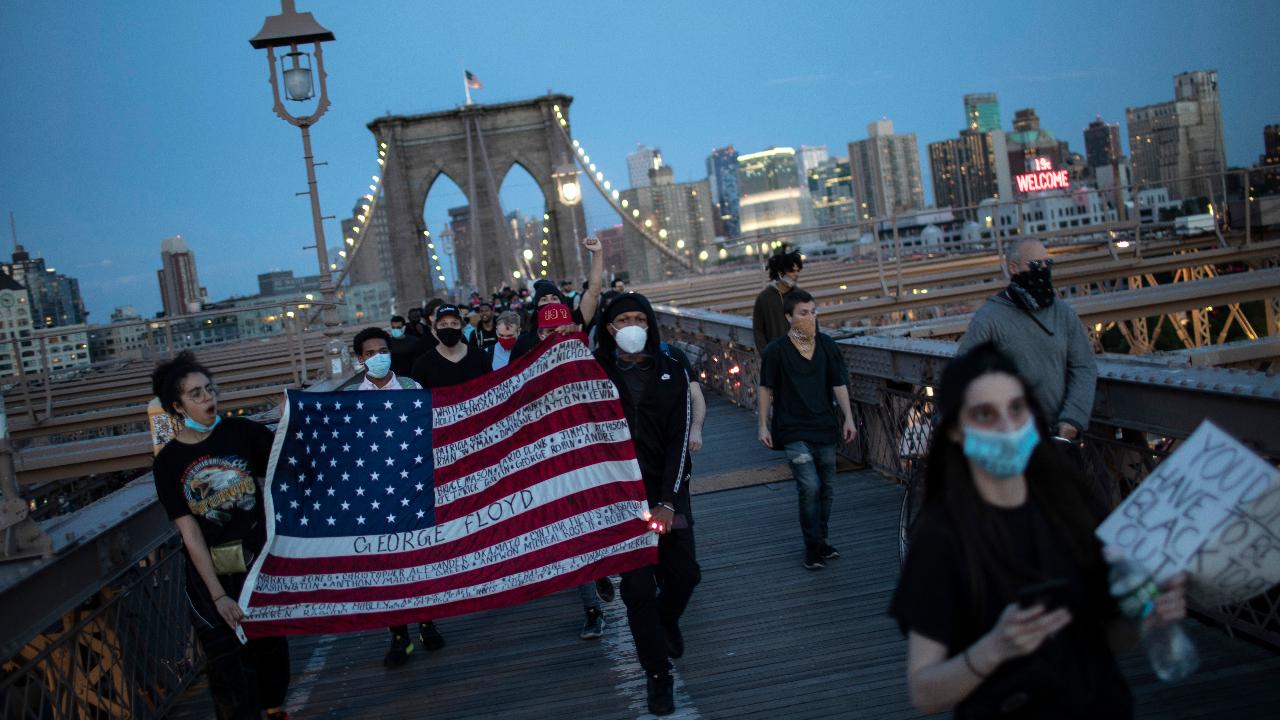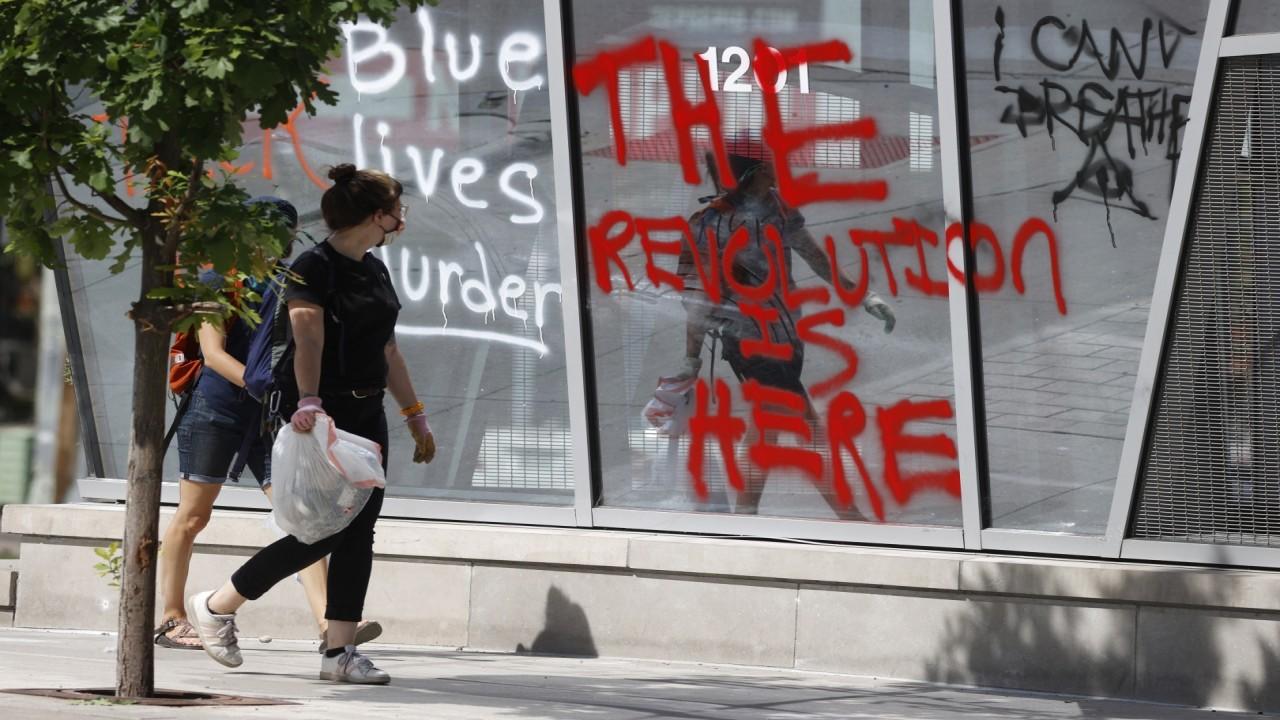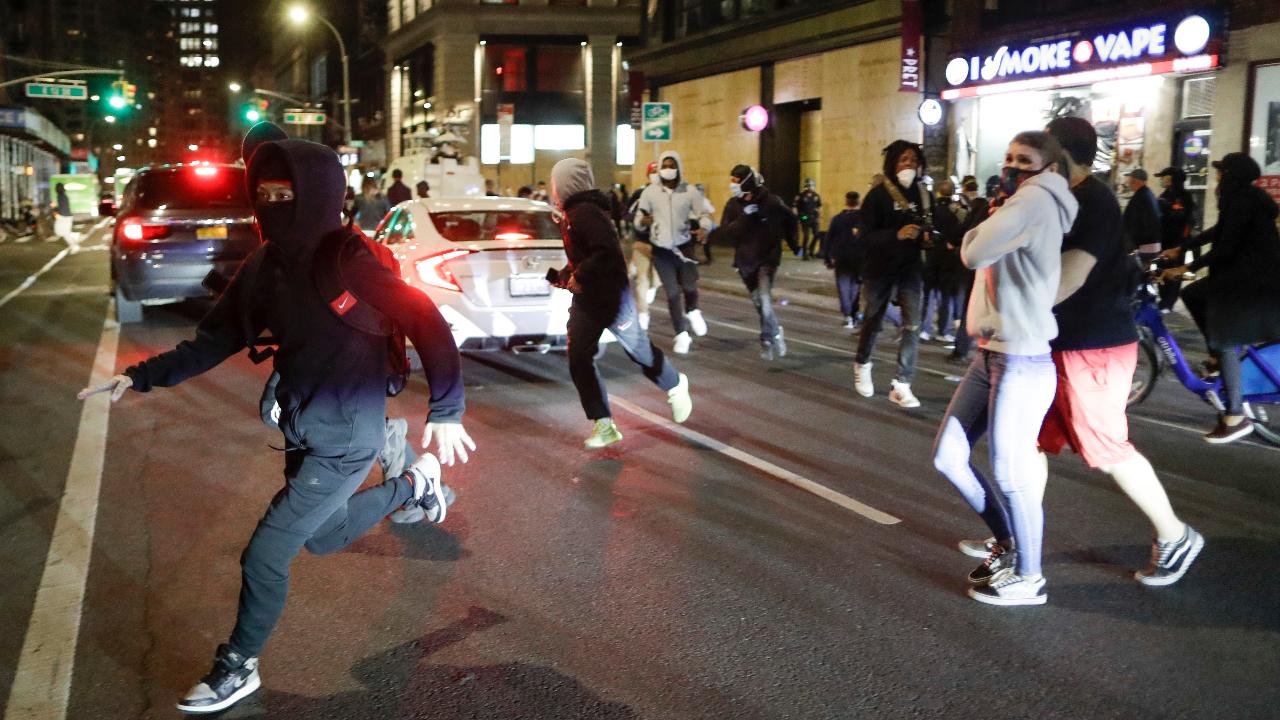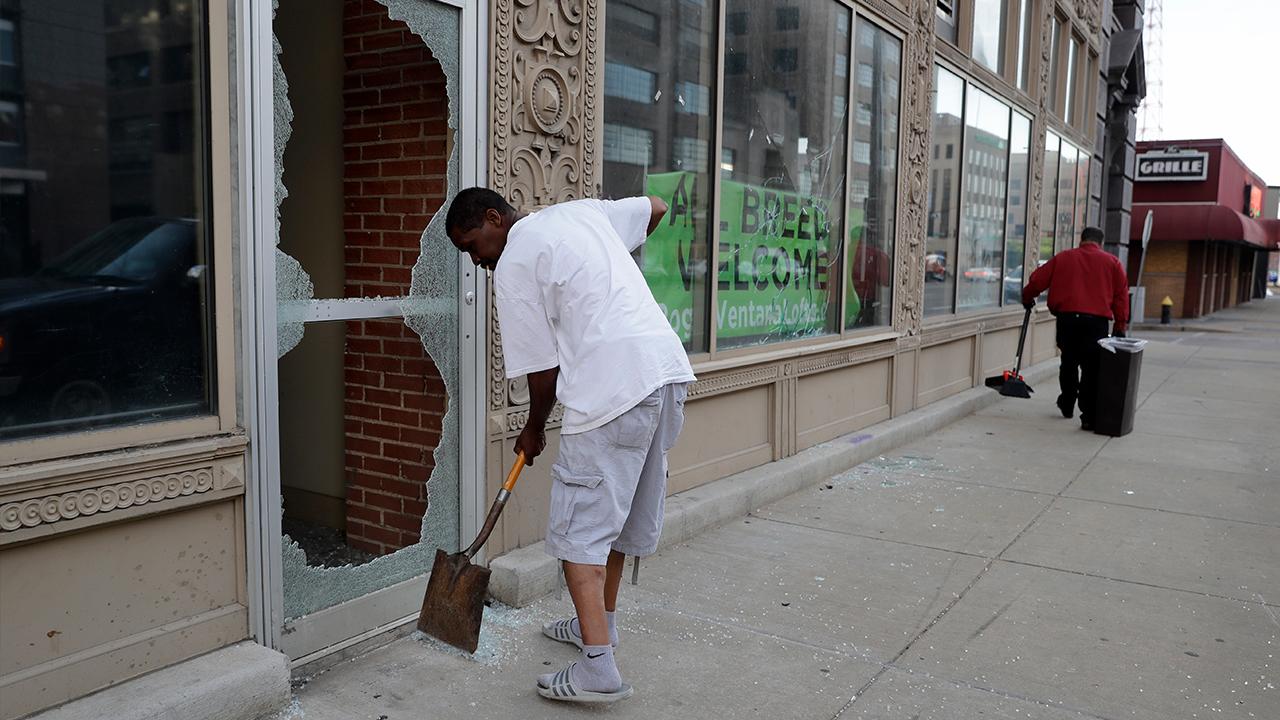Economic lockdowns making America unhappy, unsafe place. They must end now
Jobs are a good way to end riots.
Rioting is a very bad thing for the communities where they happen and the economy writ large. And a bad economy can often contribute to rioting and social unrest.
The causality goes both ways.
ECONOMIC RECOVERY IMPOSSIBLE IF STATE, LOCAL GOVERNMENTS WON'T PROTECT BUSINESS FROM VIOLENT MOBS
I have referred to the riots of the last four nights in major cities across America as the “lockdown riots.” What happens when you keep young people effectively imprisoned in their homes for eight weeks with nothing to do and no jobs to go to? You are creating a powder keg of anger and rage.
There is an old saying that fits these times perfectly: idle hands are the devil’s workshop. This is why I predicted rioting in cities several weeks ago and long before George Floyd's tragic death in Minneapolis.
Economist Arthur Laffer published a study years ago that rioting is highly associated with a bad local economy and joblessness.
Democratic mayors and governors have destroyed the jobs and livelihoods of their citizens by extending onerous lockdown orders beyond what many would have considered reasonable.
LOOTING, VIOLENT PROTESTS BREAKING BACKS OF SMALL BUSINESSES WE NEED TO RESTART AMERICA
It should be no surprise that inner cities were tinderboxes waiting for a match to be lit.
In the 1980s and 1990s when the economic prosperity of the nation surged, riots were rare.
If anything good can come out of the protests it is that blue state governors and big city mayors may finally come to their senses and open up their cities to commerce not just protesters.
UPSTATE NEW YORK STORE OWNERS ATTACKED WHILE PROTECTING BUSINESS FROM LOOTERS
What are the likely economic impacts of these sometimes violent protests?
First, it is very clear that the areas that will be the most negatively affected are the very inner cities where the rioting has occurred.
Studies show that in the 1960s, an era of widespread and long-lasting inner-city rioting, property values in these areas fell significantly and for at least a decade.
This does not bode well for the future of Minneapolis, Chicago, Philadelphia, Los Angeles, and New York – cities that were already seeing a mass exodus due to the pandemic.
RETAILERS AND RESTAURANTS HIT IN PROTESTS, ADDING TO CORONAVIRUS DAMAGE
Now is not the time to be buying commercial or residential real estate in any of these cities.
Another conclusion from studies of the aftermath of the 1960s rioting is that blacks and other minorities are likely to see the biggest income losses. And those losses could be sustained.
According to the National Bureau of Economic Research, “the riots had negative effects on blacks' income and employment that were economically significant and that may have been larger in the long run (1960-1980) than in the short-run (1960-1970).”
GET FOX BUSINESS ON THE GO BY CLICKING HERE
Retailers, small and large, suffer in the aftermath of civic unrest in cities. We have already heard from Target, Amazon, Walmart and Apple that they will shut down scores of stores mostly in inner cities due to the risk of looting, burning and the safety of their workers.
Amazingly, so far the financial markets have shrugged off the pandemonium.
Financial markets opened higher on Monday morning after the mob scenes from coast to coast. This is the best and most reliable indicator that the big money is saying that we will get through this crisis within minimal long term disruption to business conditions in America.
We will see.
Some of the wounds and divisions these riots and the protests of anti-lockdown protesters on the right have exposed is that America is a deeply divided country – and this could be perhaps the beginning, not the end of the violence.
I hope I’m wrong.
But what is certain is that economic lockdowns are starting to make America a very unhappy and unsafe place. They must end now and everywhere. Jobs are a good way to end riots.
Stephen Moore is a senior fellow at FreedomWorks and a member of President Trump’s Economic Recovery Task Force.























